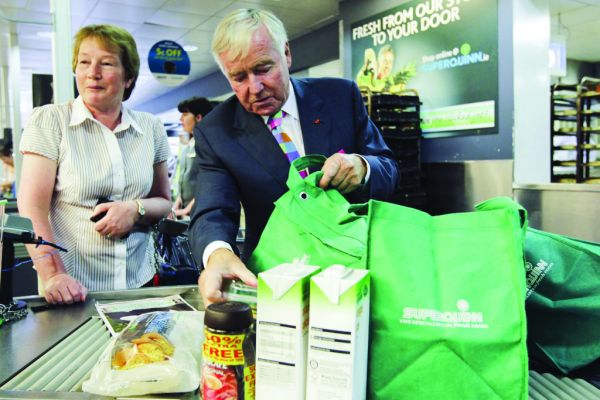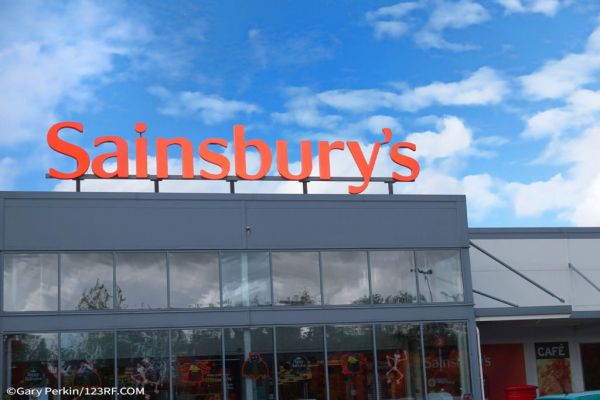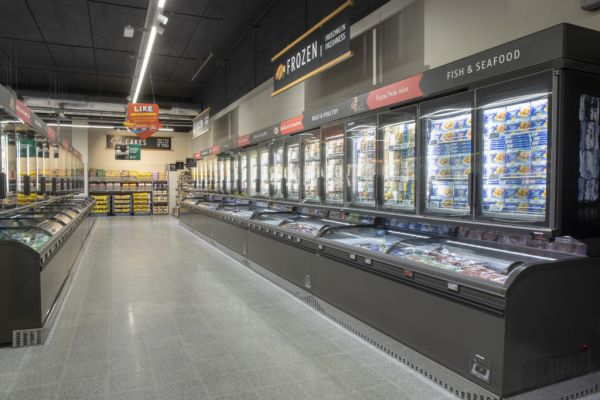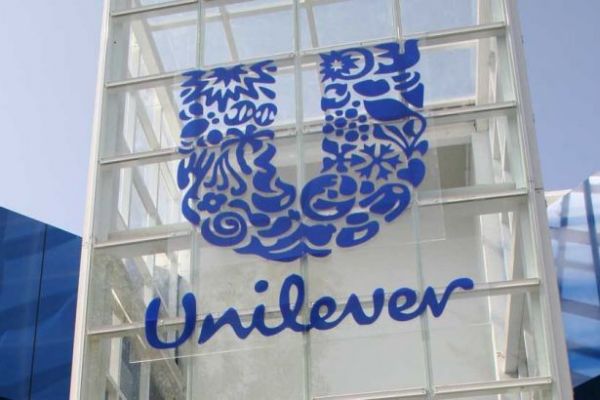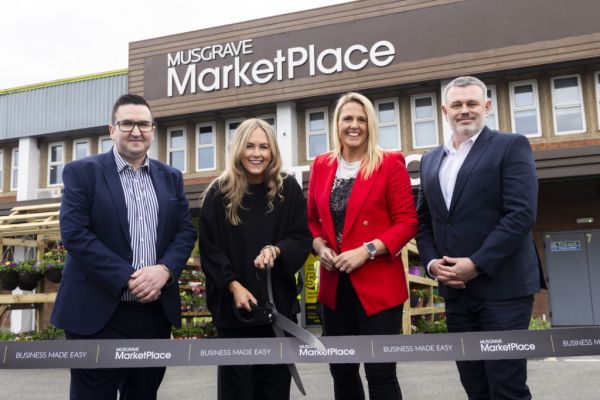Arguably the seminal retail handbook of its time, Feargal Quinn’s Crowning The Customer celebrates its 25th birthday this year. Stephen Wynne-Jones caught up with the former Superquinn chief to determine whether the points raised are as prevalent today as a quarter of a century ago.
In his preface to Crowning The Customer, the 1990 retail handbook by former Superquinn chief Feargal Quinn, Sir Tony O’Reilly makes the observation that in other markets, “the received wisdom has been that a high level of service is something the customer has to pay for in higher prices, but in Ireland this has always been impossible because the grocery trade is so competitive.” It’s a point worth dwelling on, particularly given the mileage that the sector has undergone in recent years. Today, just as when Quinn first put pen to paper over a quarter of a century ago, pricing is a central concern for shoppers, but similarly, as was espoused back then, consumers may come for the value, but will stay provided they feel rewarded for doing so.
The retail industry of 1990, into which Crowning The Customer was launched, was a vastly different animal to what it is today. Aldi and Lidl were still very much alien, Teutonic retail concepts, and most consumers associated loyalty programmes with hotel chains, rather than supermarket aisles. Quinn’s Superquinn operation was viewed as a benchmark setter; offering concepts such as free playhouses for customers’ children, umbrellas being made available on wet days, carry out services to customers’ cars, and free butchers’ bones for the pet dog. “A customer at Superquinn is offered a range of services that is unrivalled not only in Ireland but virtually anywhere in the world,” O’Reilly’s introduction read. Few would have disagreed.
But while times have moved on, Quinn believes that the fundamentals of successful retailing have remained the same – if you can satisfy what the customer’s real needs are, he or she will return to your store rather than others; the famous ‘Boomerang Principle’ on which Superquinn was built.
“I think that there are very few things in there that don’t apply anymore,” Quinn says today of the book, which has sold more than 50,000 copies, and been translated into French, Italian, Spanish, Japanese, Arabic, and a host of other languages. “I believe, first and foremost, that it’s still important to have some system in place to be able to listen to your customers’ views, and particularly, how you deal with complaints. Technology, I believe, has enabled us to do that a lot better than we did in the past.”
Over the next couple of pages, we analyse a few of the points raised by Quinn in the book, through a series of direct quotes, and examine them in a modern retail context.
“During the 1960s and 1970s, businesses had priorities other than the customer. […] The arrival of new technology heightened these trends. The fact that our company thrived on being customer-driven was seen as a hangover of the past, not a harbinger of the future.”
While the 60s and 70s certainly introduced more ‘system-focused’ thinking, in 1990 the information technology revolution was still in its infancy. Today’s consumer is always-on, always connected, and the retail sector is still coming to terms with how to deal with that phenomenon. While not disputing the impact that technology has on the retail environment, nor on the customer relationship, it is not a crutch that can solve fundamental problems.
“Social media, for example, is a powerful weapon, but some people don’t know how to use it,” says Quinn. “It is amazingly useful, but that doesn’t mean it can take over everything. If I want to buy cheese, I want a selection, and I want to be able to smell it, and savour it. The assumption that social media will automatically replace that experience is wrong.”
“Our decision to stop selling sweets at checkouts […] tested our customer-driven commitment. On the one hand we had hard figures that detailed the business we were about to forego. On the other hand, we were not able to quantify the benefit that we would achieve by making the change.”
Superquinn’s decision to cease selling sweets at checkouts was a game changer, not only because it reduced pester power for harrassed mothers, but also because it represented an example of blue sky thinking. While Superquinn would inevitably suffer short term losses, in terms of reduced confectionery sales, the long term results (encouraging customers to shop there, the Boomerang Principle writ large) would far outweigh these negatives.
“Today, it’s interesting to look at the businesses that have responded to the Boomerang Principle, and those that haven’t,” says Quinn. “At Ryanair, Michael O’Leary has taken the same approach that we did, back in the 1960s. That was an era that saw the introduction of the modern supermarket: you had to pay for your goods up front, rather than get them on credit; you had to take them home yourself, rather than have them delivered; you had to carry your own shopping basket around the store. But the trade off was that you could offer lower prices, and keep customers coming back.”
As an aside, Quinn notes the response issued by Lipton’s – a major UK chain that boasted a significant presence in Ireland in the 1960s – to the advent of self-service stores. “The chief executive of Liptons was asked at its AGM in 1961, ‘why don’t you have any self-service stores?’. His response was, and let’s not forget that Lipton’s had around 5,000 stores at the time, ‘Oh, we don’t think it will catch on’. When you look back, you can see the companies that were being driven by the accountants, by the stock market, and those that were being driven by customer principles.”
Which brings us on to the next valid point.
“We get bewitched by short-term payoffs. Because they are the easiest to measure, we are tempted to measure them alone. And what we measure, we do something about. What we don’t measure gets put on the back burner, unless leadership from a customer-driven top person changes the priorities.”
In today’s fast-paced world of quarterly results and 24-hour news, success needs to be constant, and many busineses – particularly retailers – are victims of that chase. It could be argued that Tesco’s recent difficulties, such as last year’s profits overstatement, resulted from an insatiable hunger to drive profits, rather than from the organic growth of increased in-store sales. For Quinn, little has changed between today’s retail environment and that of 25 years ago – successful retailers ultimately need to be more than just numbers men.
“You’ve got to keep both balls in the air; you’ve got to be a juggler,” he explains. “On the one hand, you might look after your customers really well, and have a unique offer, but on the other, you can’t pay your debts, and ultimately you go out of business. It’s the same the other way round. If you please your shareholders, but lose your customers, that won’t help either, but at least you’ll stay alive.”
Quinn believes that the need to provide a point of difference is central to ensuring all ‘balls remain in the air’, to borrow his expression. “For us, we started off with a focus on price, and trying to get as many people through the checkout as possible, even if it meant that they would be delayed. In the 1970s, we changed all that, and put the focus on service, on making sure your children were looked after, on taste, on quality, on freshness. We were always looking for the ‘other’ – things that would differentiate us from our competitors. I don’t see enough of that happening nowadays.”
Part of this comes down to how well a retailer practices what it preaches in its advertising message. Quinn says that Aldi and Lidl’s messaging has impressed him, particularly given that the discounters “advertise in a totally different way to what I would have expected”. But in terms of the bigger picture, “if you make promises in your advertising and publicity and don’t follow through, when customers come into your shop there’s a huge disappointment.”
“You need to be able to wear the customers’ hat, to walk in their shoes. In a real sense, you need to be able to be the customer. […] The marketplace looks totally different from where the customer is standing.”
With so much investment in loyalty schemes and customer engagement tools, it’s never been easier for retailers to ‘know their customer’, yet too often this is not used as a hook.
In Crowning The Customer, Quinn tells a witty anecdote about helping a female customer to her car with shopping, all the time referring to her by name; only to be accosted at the other end of the car park by the woman’s husband, demanding to know how he knew such apparently personal details about his wife.
While that may have taken place in a simpler time, it underpinned the near obsession that Quinn and his team had on knowing their customer better, in order to provide a true personal service.
“We can do that a lot more today than we could in the past,” he says. “Almost everybody pays with a credit or debit card these days, so you know the name of almost every customer passing through your checkout. It doesn’t take much, just a ‘thank you very much Mrs Jones’, and as a result, ‘Mrs Jones’ is rather chuffed, thinking that she must be such a good customer that even the checkout operator knows who she is.”
The ability to do this, he adds, “doesn’t happen by accident. It happens if you train well, set an example, and set the tone for it,” he says.
“One of the most important things that keeping in touch with customers gives you is sensitivity to change. Seeing change coming and adapting quickly to it is the key to success in any competitive marketplace. You cannot see the change coming if all of your experience of the marketplace is in the past.”
Having hung up his Superquinn boots over a decade ago, Quinn still retains a high profile, both as one of the more active members of Seanad Eireann, and as the host of RTE’s recent Feargal Quinn’s Retail Therapy. Yet, as he explains, so many businesses he visits still don’t ‘get it’, and remain stuck in a endless loop of doing things ‘the way they have always been done’.
“I’ve been all over Ireland, and it still amazes me to see the businesses that are really ‘boomerang-thinking’ and those that just don’t understand that at all,” he says. “You might have two different shops on the same street, and one is really focused on wowing its customers, and giving them a reason to come back, while the other one just can’t grasp that concept.”
It may have been a quarter of a century since Quinn wrote the defining text about retail customer service in this country, but for some operators, the message still isn’t getting through.
